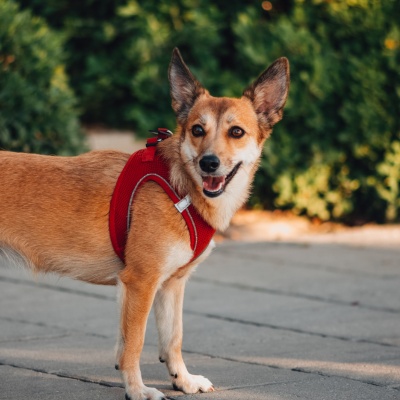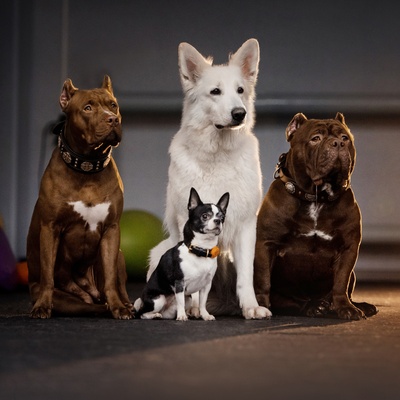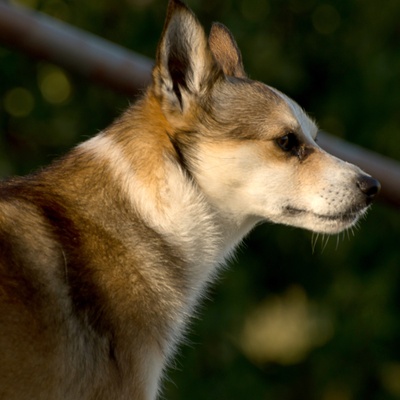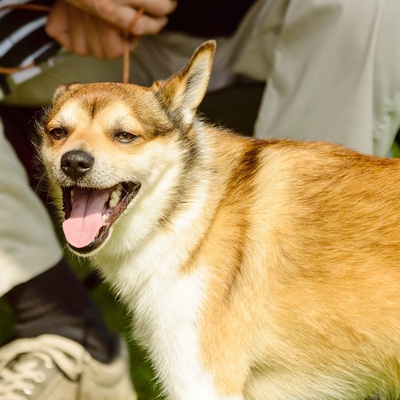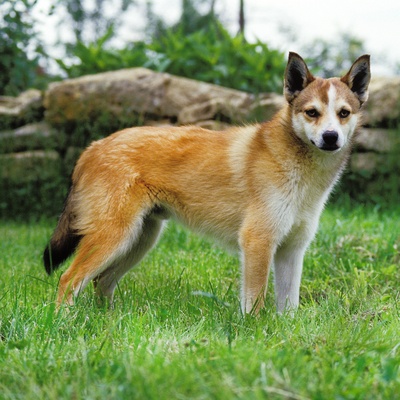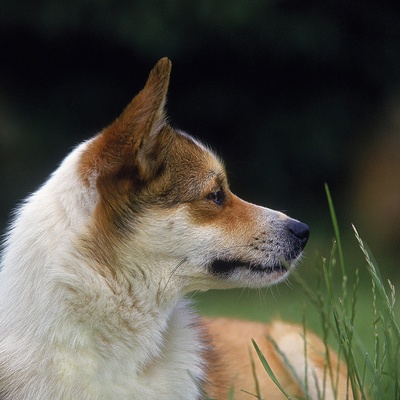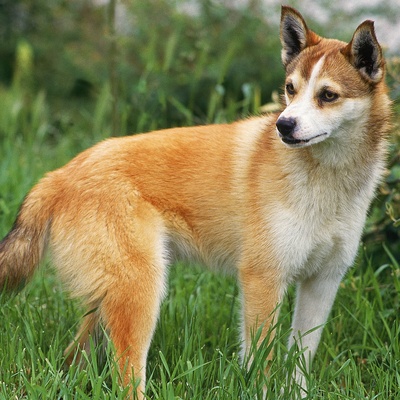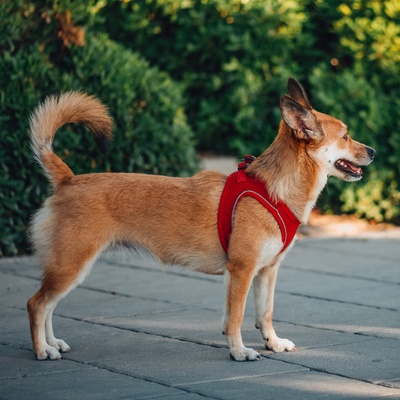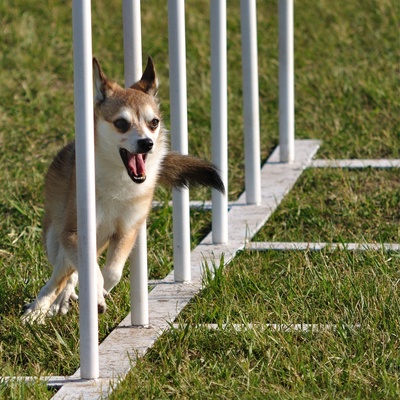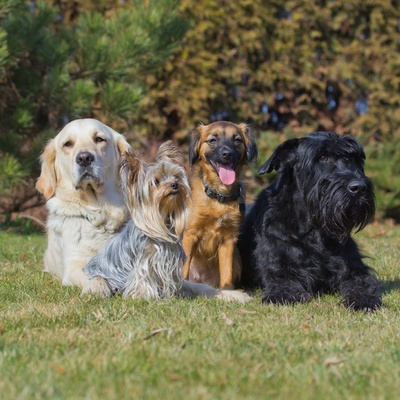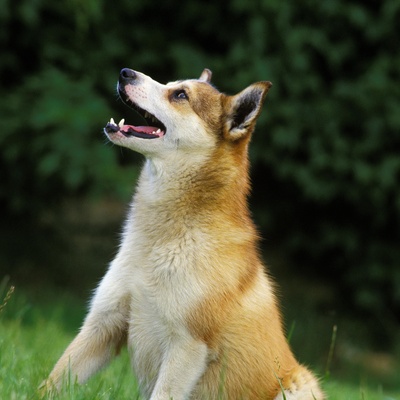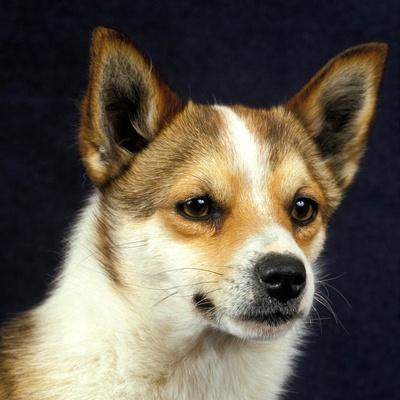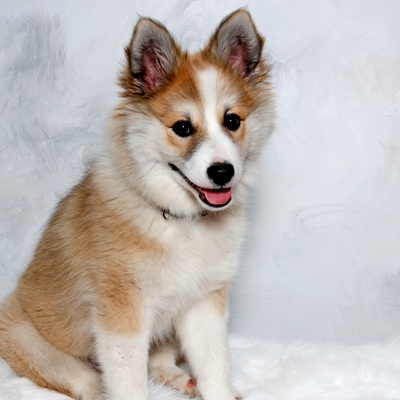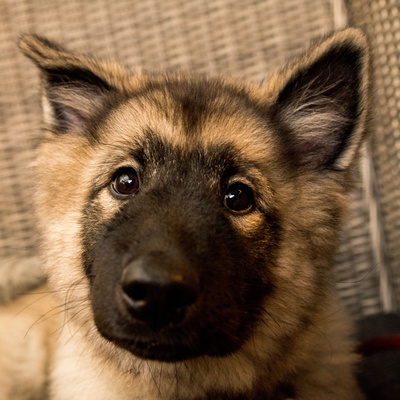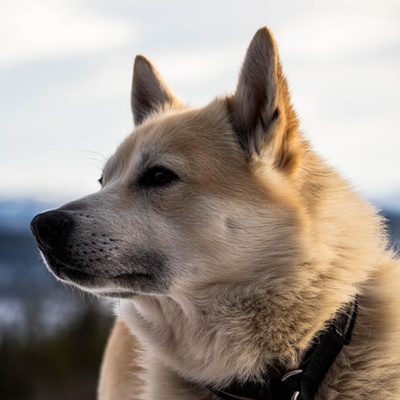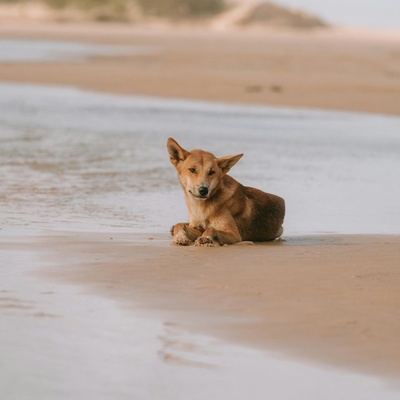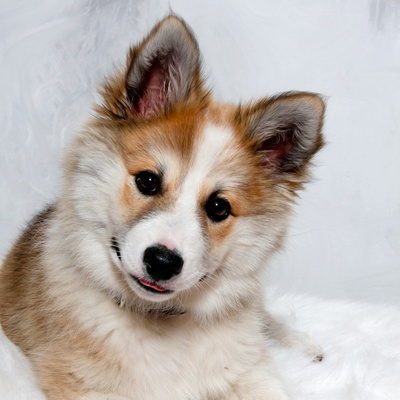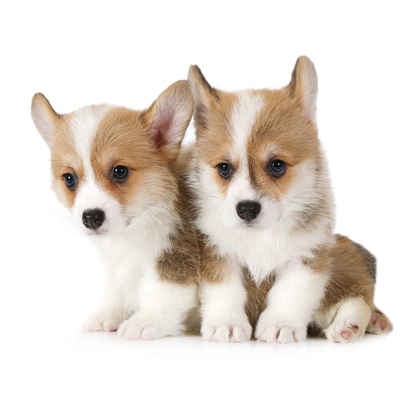Introducing the Norwegian Lundehund
Discover everything about the Norwegian Lundehund: its unique traits, behavior, training needs, and cost.
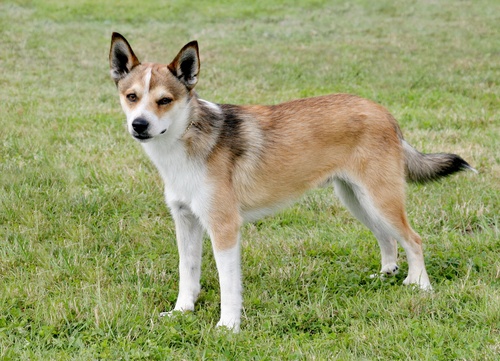
Discover everything about the Norwegian Lundehund: its unique traits, behavior, training needs, and cost.
The Norwegian Lundehund, bred in Norway to hunt puffins, is known for its agility and extra toes. Once nearly extinct, it is now treasured for its rare traits and history.
Brave, adaptable, and intelligent, the Lundehund makes a loyal companion. Affectionate and playful, it bonds closely with its family and is friendly with both people and other pets.
This section outlines the unique features of the Norwegian Lundehund.
The Norwegian Lundehund belongs to the Spitz and Primitive Types group, known for its agility and resilience, particularly in hunting. Its temperament is curious and independent.
The Norwegian Lundehund is small to medium-sized, standing 12-15 inches tall and weighing 13-16 pounds.
The Lundehund has a double coat, with a short to medium outer coat and a dense, soft undercoat for protection.
Lundehunds typically have reddish-brown to tan coats with white markings and occasional black-tipped hairs.
The Lundehund adapts to various environments but thrives best with outdoor space for exercise.
Friendly with family but cautious with strangers, the Lundehund gets along well with children and other pets with early socialization.
Generally healthy, but prone to gastrointestinal issues (Lundehund Syndrome) and joint problems.
The Lundehund is intelligent but independent, requiring patient and consistent training with positive reinforcement.
We can help!
Each dog has its own character and specific needs. Making the right choice will allow you to ensure their well-being and yours.
Thanks to our quiz, you will know the breed that suits you based on your personality, your style and place of life and many other criteria.
Don't wait any longer and take the quiz to find out the answer!
The Norwegian Lundehund is a small, agile breed with an extraordinary physical balance due to its six toes on each foot. Its coat is usually reddish-brown with white markings, and its expressive face features large, triangular ears that fold closed to protect against debris.
Norwegian Lundehunds are small dogs, with females typically standing between 12-13 inches and males reaching up to 15 inches. Females generally weigh around 13 pounds, while males weigh up to 16 pounds.
This breed grows relatively steadily, with most reaching their adult size by about 9-12 months of age.
The Norwegian Lundehund has a double coat with a short to medium-length outer coat. Its fur is straight, dense, and weather-resistant, while the undercoat is soft and thick, providing warmth and protection in harsh climates.
The Norwegian Lundehund comes in a specific color palette. Typical colors include reddish-brown to tan, often with white markings, and sometimes black-tipped hairs.
The Norwegian Lundehund’s coat is relatively easy to care for, but it's thick undercoat requires attention. It sheds moderately year-round, with more shedding during seasonal changes in spring and autumn. Regular brushing, at least once a week, is necessary to prevent matting and to keep the coat healthy. Occasional baths are sufficient, as the breed tends to have clean, weather-resistant fur.
The Norwegian Lundehund is a compact, agile dog with a wedge-shaped head and tapering muzzle. Its almond-shaped, amber or brown eyes give it an alert expression. The triangular ears are set high and can fold closed. The body is muscular and flexible, with a deep chest and strong legs, built for climbing and agility.
The Norwegian Lundehund is loyal, independent, and affectionate, forming strong bonds with its family but reserved with strangers.
Of the 400 registered dog breeds, the Norwegian Lundehund belongs to the Spitz and Primitive Types group, known for agility and resilience. Breeds in this group, like the Siberian Husky, are hardy and intelligent. The Lundehund was originally bred for puffin hunting, and today it remains a loyal, energetic companion with strong instincts.
The Norwegian Lundehund is a curious and independent dog with a unique sense of loyalty. Though it values its own space, it is affectionate toward its owner and thrives on forming close bonds. These dogs do best with attentive owners who provide consistent presence and care, helping them develop into confident companions.
Norwegian Lundehunds are friendly and sociable, but they can be cautious with strangers. They bond well with their family and, with proper socialization from an early age, can get along well with children and other pets. Early socialization is key to ensuring their natural independence doesn’t hinder their ability to form positive relationships.
Take the test and find out the dog breed that matches your personality and lifestyle.
The Norwegian Lundehund is quite adaptable and can thrive in various living environments, including apartments or houses, whether in urban or rural settings. However, this breed requires consistent attention and interaction with its owner. To keep them happy, at least two daily walks of 30 minutes each are recommended.
While adaptable, the Norwegian Lundehund benefits from an outdoor environment where it can satisfy its natural curiosity and burn off energy. Access to a yard or regular trips to open spaces is ideal for this adventurous and energetic breed.
The Norwegian Lundehund is an intelligent breed with a unique sense of independence. While they are capable of learning quickly, their training requires patience and consistency, as they may sometimes be stubborn. Positive reinforcement is key. Given their agility and curiosity, equipping them with a GPS collar is recommended to prevent potential escapes during outdoor adventures.
Though the Norwegian Lundehund can be attentive and responsive, their independent nature sometimes leads to selective listening. Early and consistent training is crucial to ensure they develop good recall and obedience skills. Socialization from a young age is also important to help them adapt to various environments and people.
The Norwegian Lundehund is generally a healthy breed, but daily care is essential to maintain its well-being. Regular grooming, monitoring for health issues, and preventive measures can help keep this breed healthy and free from infections.
The Norwegian Lundehund is a hardy breed but is prone to specific health issues, particularly gastrointestinal problems such as Lundehund Syndrome, which can lead to digestive disturbances. They may also be susceptible to joint issues due to their unique structure. The typical lifespan for this breed ranges from 12 to 14 years.
Routine veterinary check-ups are crucial for the Norwegian Lundehund, ensuring vaccinations, deworming, and flea treatments are kept up to date. Daily care includes brushing their coat to prevent matting, cleaning their ears regularly, dental care to prevent tartar buildup, and trimming their nails. Monitoring for potential allergies and consulting a vet for appropriate care is essential. This breed is not hypoallergenic.
Like all dogs, the Norwegian Lundehund has specific nutritional needs that must be met to maintain its vitality and strength. A balanced diet rich in proteins and vitamins is essential. High-quality kibble designed for the breed can provide a solid nutritional foundation. For more active dogs, you can supplement their diet with lean white or red meat to boost protein intake, while keeping fats to a minimum.
The Norwegian Lundehund is a rare and valued breed, with few breeders in Great Britain. It's important to consider several factors before adopting.
Before adopting a Norwegian Lundehund, there are some important points to consider. First and foremost, you need to check that the breeder is reputable. This means visiting the breeder's premises to assess the living conditions and behavior of the dogs. Responsible breeders will provide transparent information about the puppy's health and any genetic illnesses in its lineage.
Additionally, by law, your dog must be microchipped by 8 weeks old and registered in a database like Petlog or Animal Tracker. Non-compliance may result in a
fine. Your vet or Blue Cross centers can assist with microchipping.
A Norwegian Lundehund puppy usually costs between
and
Annual care expenses, including food and veterinary costs, typically range from
to
.
Choosing a dog that matches your personality and lifestyle will ensure your well-being and his!
To access the most relevant information, suitable payment methods, and delivery in your region, please select the website corresponding to your country.
